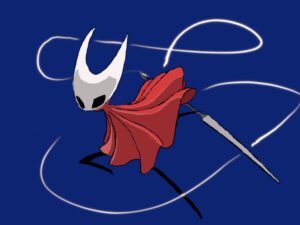The last ten years have seen a revolution within women’s figure skating, the ‘Quad Revolution’! One of the major forces behind this so-called revolution is Alexandra Trusova, who at the age of 13 was the second woman to ever land a quadruple salchow. She was also the first woman to ever land three different types of quad jumps: the toe loop, lutz, and flip.
Her success lead to a boom in young female figure skaters, primarily Russian, attempting quadruple jumps – thought to be impossible just a few decades before. Some of those following in Trusova’s footsteps are: Kamila Valieva, Anna Shcherbakova, and Sofya Akatyeva, all coached by Eteri Tutberidze.
Figure skating fans joke about the ‘Eteri Expiration Date’ because many of Tutberidze’s students retire around the age of 17 but this is not normal. Severe injuries and intense training is forcing skaters into early retirement. This report looks at what the skaters, Eteri Tutberidze and her team have to say about training at the Sambo-70 rink in Moscow.
Weight control
Tutberidze and her team tell students that strict control over their weight is necessary for success. This requirement often coincides with the skater’s changing body during puberty.
Eteri teaches her students very difficult jumps and pirouettes, the aerodynamics they need to achieve them are only possible with low body weight and mass.
In 2014, Tutberidze was proud to inform the press that 15-year-old Yulia Lipnitskaya, then her star pupil, sometimes existed almost entirely on a diet of powdered nutrients. Lipnitskaya achieved a gold medal in the team event at the winter Olympics of 2014. She immediately shot to fame in Russia and faced enormous pressure to continue performing in later competitions. However, due to battles with anorexia and injury, Lipnitskaya retired from competition at the age of 19. She now coaches at Angels of Plushenko, a rival skating rink also in Moscow. She refuses to speak to Tutberidze, having nothing good to say about her and the training environment in Sambo-70.
Alina Zagitova, the 2018 Pyeongchang Olympic champion, shared in interviews with the press that she was not allowed to drink water at all during the Olympics. She was told that it would make her “swollen” and unable to jump. She stated that she and her teammates “just rinsed [their] mouths and spat the water out.” Zagitova also shared that leading up to the Games, she was subject to weigh-ins three times a day. This mentality towards food and weight gain is so normalized in Tutberidze’s training camp that Zagitova said “in terms of puberty, when you become fat – it seems to me that these are all fictions. You just need to shut your mouth and don’t eat!”
Tutberidze’s students are told that they should eat and drink as little as possible despite training as much as elite, senior athletes. Anna Shcherbakova, the newly crowned Olympic champion, was praised by Eteri’s choreographer Daniil Gleikhengauz on national television earlier this season for not being as “obsessed with food like some girls”. He told the interviewer that Shcherbakova can eat just two shrimp for dinner and be full.
Training
Tutberidze’s training regime relies on keeping skaters as light as possible and intense training. Evgenia Medvedeva, silver medallist at the Pyeongchang Olympics, has a chronic back injury and can no longer turn her back to the right. As a result, she formally retired from competitive figure skating at the age of 22, though she had not competed since she was 20.
When young people overtrain without taking in the nutrients necessary for growth, career-ending injuries follow. Aliona Kostornaia, the 2020 European Champion, sustained a wrist fracture before the 2021 Russian National Championships and was thus unable to compete for an Olympic spot. The 18-year-old was back on the ice 10 weeks later, but in her first training session back she fell and broke her other wrist. Injuries are common in all sports, but there is speculation over whether Sambo-70 skaters are given the time and resources needed to heal. Daria Usacheva is another 15-year-old girl training at Sambo-70. This season she sustained a ligament tear in the right leg, practicing a jump takeoff during the 6-minute warm-up at the NHK Trophy. She had trained as usual despite hip pain that had been bothering her for a while.
17-year-old Adyan Pitkeev was set to become one of the next stars of figure skating in 2015 after doing well on the Grand Prix circuit. However, he had a back injury prior to the 2016 Russian National Championships, and “the pain was so bad that [he] couldn’t lift [his] arms without getting sick” on the morning of the free skate. After being given 5 injections of painkillers by his coaching team, Pitkeev was forced to compete anyways. Pitkeev fell on his opening jump and was rumored to have sustained a spinal fracture. However, because he was high on morphine and feared the response from Tutberidze if he placed badly, he was able to complete the program, though he looked to be in absolute agony by the end. Since this competition, Pitkeev has never competed in figure skating again due to the severity of his back pain and is now a coach at CSKA Moscow.
Mental Pressure
In an interview on Instagram Live with Lina Fedorova, skater Polina Shuboderova recounted one memory of being forced by her coaching team to sit in a garbage can outside of the rink after having a bad practice session. She was told that ‘trash goes in the trash’ and sat there with the lid closed for the rest of the day.
Sambo-70 is often described as a “pressure cooker” and a “conveyor belt” due to the sheer number of top athletes raised there; 4 out of the top 10 senior ladies are students of Tutberidze. With so many skaters coached by the same team at the same rink, they are constantly competing against each other. The intense pressure and mental abuse faced by these children were put on full display to the world at the 2022 Beijing Olympics, where two 17-year-old Tutberidze students Anna Shcherbakova and Alexandra Trusova won gold and silver, respectively.
Trusova is known as the “quad queen”, and was told by her coaching team that the day she lands 5 quadruple jumps in a competition is the day she will achieve her dream of winning Olympic gold. She gave the performance of her life at the Olympics and won a silver medal despite the base value (difficulty of her jumps, spins, etc) of her program being even higher than Nathan Chen’s, the men’s Olympic Champion.
When Shcherbakova realized she won Olympic gold, she did not smile or have any sort of reaction, saying “I feel emotionally empty inside, nor insanely happy for myself, nor any emotions for others.” She had been left to sit alone in a room for 10 minutes with no coaches or friends to congratulate her for winning the greatest achievement there is in sports.
All of these reports can be found pretty easily online and there are many more. Tutberidze has yet to face any repercussions for her treatment of her students. She has been voted the ‘coach of the year’ by the International Skating Union (ISU). Eteri Tutberidze believes that she and her coaching team are doing everything right, and will not take any criticism for her training methods.
Many skaters have reported her brutal training methods but Tutberidze is still hailed as a hero by many and there is little hope that any investigation will lead to change.
Disclaimer: Twitter and Google Translate were used to translate information from Russian media so there might be some inaccuracies in the text.




